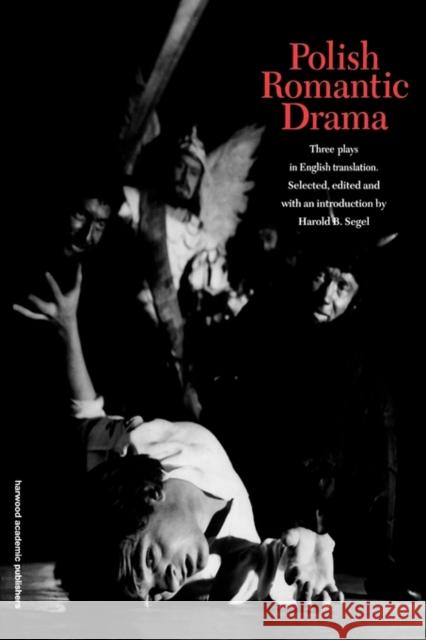Polish Romantic Drama: Three Plays in English Translation » książka
Polish Romantic Drama: Three Plays in English Translation
ISBN-13: 9789057020889 / Angielski / Miękka / 1997 / 300 str.
Polish Romantic Drama: Three Plays in English Translation
ISBN-13: 9789057020889 / Angielski / Miękka / 1997 / 300 str.
(netto: 214,52 VAT: 5%)
Najniższa cena z 30 dni: 201,44
ok. 22 dni roboczych.
Darmowa dostawa!
This is the first volume in English to be devoted entirely to Polish Romantic drama. It contains translations of three major plays: Forefathers; Eve, Part III, by Adam Mickiewics; The Un-Divine Comedy by Zygmunt Krasinski; and Fantazy by Juliusz Slowacki. In his highly informative introduction, Professor Segel discusses the plays against the background of the Romantic movement in Poland and points out their ideological and artistic importance. As products of a revolutionary Poland; they were written and published in Paris by writers who either resettled there after the Insurrection of 1830 or otherwise identified with the Great Emigration; they are permeated with the spirit of Romantic Rebellion, with pleas for universial justice, and with queries concerning the role of the poet in society. Brillant productions of the plays in Poland in the late nineteenth and early twentieth-centuries gave impetus to an entire tradition of modern Polish theatrical experimentation as well as dramatic writing which extends to the present day.
This is the first volume in English to be devoted entirely to Polish Romantic drama. It contains translations of three major plays: Forefathers; Eve, Part III, by Adam Mickiewics; The Un-Divine Comedy by Zygmunt Krasinski; and Fantazy by Juliusz Slowacki. In his highly informative introduction, Professor Segel discusses the plays against the background of the Romantic movement in Poland and points out their ideological and artistic importance. As products of a revolutionary Poland; they were written and published in Paris by writers who either resettled there after the Insurrection of 1830 or otherwise identified with the Great Emigration; they are permeated with the spirit of Romantic Rebellion, with pleas for universial justice, and with queries concerning the role of the poet in society. Brillant productions of the plays in Poland in the late nineteenth and early twentieth-centuries gave impetus to an entire tradition of modern Polish theatrical experimentation as well as dramatic writing which extends to the present day.











